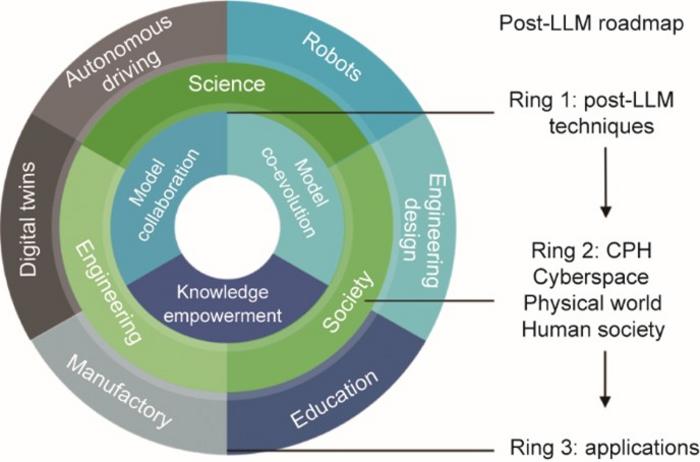A recent publication in the esteemed journal Engineering has sparked conversations in the field of artificial intelligence (AI) by outlining a compelling vision for the future beyond large language models (LLMs). The current wave of LLMs has showcased impressive capabilities in performing a variety of tasks across different modalities. However, researchers have recognized the inherent challenges these models face, including issues of factual accuracy, hallucinations, inefficiency, and signals of limited interpretability. The paper aims to navigate these issues by proposing a multifaceted roadmap for advancing AI capabilities.
One of the key areas the paper addresses is knowledge empowerment, which seeks to enhance the performance of LLMs by integrating external information seamlessly. Traditional LLMs tend to rely heavily on the static knowledge encapsulated during training, which creates a disconnect between real-time information and their output. To overcome this barrier, researchers are advocating for methodologies that incorporate knowledge directly into the training process through instruction tuning or enhanced training objectives. Additionally, techniques such as retrieval-augmented generation allow models to dynamically access pertinent data during inference, thereby improving the factual accuracy and contextual relevance of responses generated by AI systems.
Following knowledge empowerment, the concept of model collaboration comes into play, which emphasizes synergy between different architectures to exploit their individual strengths. This approach presents an exciting landscape where models not only coexist but also enhance each other’s capabilities. By implementing strategies like model merging, researchers can combine outputs from multiple models, improving overall system performance. Notably, the mixture of experts is one prominent technique that has emerged within this domain, where models can focus on specific tasks better than they would alone. Another fascinating aspect is the role of LLMs acting as task managers, orchestrating several smaller, specialized models based on the demands posed by complex tasks.
In a world where diversity is paramount, model co-evolution emerges as an essential strategy for ensuring adaptability among varying model architectures. This innovative approach enables models to grow and evolve together, optimizing their parameters based on the heterogeneity of tasks, models, and data. Various methods, such as parameter sharing and dual learning, facilitate the co-evolution process, allowing for productive interactions between disparate models. The researchers emphasize the significance of creating a collaborative ecosystem where models are designed not only to perform but to evolve through shared experiences, ultimately enhancing their versatility in handling diverse challenges.
Furthermore, the implications of advancements in post-LLM technology extend far beyond technical specifications. In scientific exploration, AI models equipped with domain-specific knowledge can guide researchers through intricate hypothesis development. For instance, in meteorological applications, AI infused with specialized knowledge can significantly elevate renewable energy forecasting. This enhancement is particularly vital as the world increasingly turns to sustainable options to counter climate change. Similarly, in engineering, AI tools can offer unprecedented solutions to complex problem-solving scenarios, enabling engineers to conceptualize and construct more robust systems efficiently.
Healthcare stands as a domain with immense potential unlocked by the advancements in AI post-LLM. With improved models that can not only process but intellect the nuances of medical data, healthcare practitioners can offer more personalized treatment options. The predictive capabilities of such AI tools will soon enable early diagnosis and treatments, elevating patient care standards. In traffic management, intelligent algorithms capable of contextual understanding can facilitate smoother operations in urban environments, reducing congestion, and enhancing safety protocols.
As the paper elaborates on the future of AI development, several critical research directions are highlighted, signaling the uncharted territories that lie ahead. Notably, there is increasing emphasis on the concept of embodied AI, which marries machine learning with physical agents that interact within physical environments. Brain-like AI is another intriguing direction, aiming to mimic the complex neural networks of human cognitive functions in a bid to create more sophisticated reasoning capabilities within AI systems. Moreover, the exploration of non-transformer foundation models is gaining traction as researchers investigate alternative architectures to challenge the supremacy of transformers in the present AI landscape.
In conclusion, the contributions from the recent paper “Knowledge-Empowered, Collaborative, and Co-Evolving AI Models: The Post-LLM Roadmap” set a foundation for understanding the evolution of AI as we know it today. The authors, among whom are notable figures like Fei Wu, provide an insightful discourse on the need for a paradigm shift in how we approach AI model development. As we look toward the future, the infusion of knowledge, collaboration, and co-evolution will serve as guiding principles that shape more resilient, adaptive, and intelligent AI systems. The shifting dynamics in AI technologies underscore the necessity of continuous innovation in both academia and industry, promising a bright horizon as we transition from traditional methods to groundbreaking solutions that will redefine the boundaries of artificial intelligence and its applications.
Subject of Research: Post-LLM advancements in artificial intelligence
Article Title: Knowledge-Empowered, Collaborative, and Co-Evolving AI Models: The Post-LLM Roadmap
News Publication Date: 19-Dec-2024
Web References: DOI
References: Fei Wu et al.
Image Credits: Fei Wu et al.
Tags: AI co-evolution strategieschallenges of large language modelscollaboration in artificial intelligenceenhancing AI factual accuracyfuture of AI beyond LLMsimproving AI interpretabilityinnovative methodologies in AI trainingintegrating external information in AIknowledge empowerment in AImultifaceted roadmap for AI developmentPost-LLM AI advancementsretrieval-augmented generation techniques





